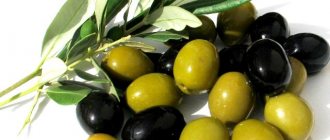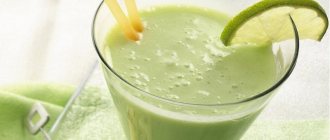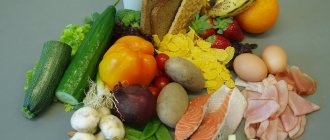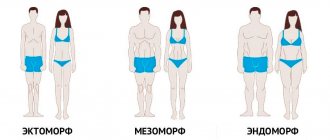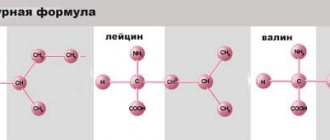The confusion with carbohydrates comes when people try to create a one-size-fits-all approach and claim it is the only thing that works for everyone in every situation, regardless of body size, activity level, health, metabolism, or goals.
The truth is, there is no perfect diet for everyone. There are several effective and simple hikes that take into account where you are now and where you want to go. Confusion and problems arise when nutrition is considered separately, in a vacuum.
There's a hierarchy to creating an effective weight loss diet, and it doesn't start with carbs.
Calories
While carbohydrates are on the minds, calories come first. The only way to force your body to burn fat is to burn more calories than it takes in.
You can cut carbs or fat to zero, but if you go overboard on calories, you won't lose weight.
What happens if you cut out carbs but eat too many calories?
Decreased glucose and insulin levels increase fat oxidation. But with an excess of calories, the body will use dietary fats for energy and will not reach body fats. In other words, the body turns into what they like to call a “fat burning machine,” but this has nothing to do with body fat. Only calories determine which fat will be used for energy - dietary or subcutaneous.
Excess calories from fat will be stored as fat, no matter how low your insulin levels are. The body can store fat even without high levels of insulin.
Proteins, fats
The second most important point of a proper diet is a sufficient amount of protein. It helps preserve muscles - what shapes the figure. This is also one of the most “filling” foods, it reduces the feeling of hunger and helps you better adhere to your diet without breaking into rolls and chocolate in a fit of acute hunger.
In third place are fats, which are important for all types of cellular functions and for maintaining the natural production of hormones.
Fiber, vitamins
Fruits and vegetables are a source of vitamins, minerals and fiber. Fiber saturates well, like proteins, and helps fight hunger and glucose surges.
Carbohydrates
Starchy carbohydrates (cereals, breads, legumes) are a source of energy, so they should be supplied depending on your activity level, training, metabolism and goals. That is, they are definitely not in first place in the hierarchy.
Carbohydrates for cutting and relief training
First of all, carbohydrates are the key to endurance and energy, they also help build and restore muscles, but you need to use them correctly, otherwise you may encounter a completely different side of these microelements.
Having interviewed various competition winners and simply famous athletes, we did not receive a definite answer, because everyone has a different opinion on this matter. So, if even qualified specialists cannot give a clear answer, then how can an ordinary person understand all this?
Well, first of all, there is one well-known fact about carbohydrates. They are divided into simple and complex. So, simple carbohydrates are absolutely useless and, if you want to get in shape and achieve relief, you will need to reconsider your diet and exclude them from it.
What foods can you eat?
To find out which foods and dishes contain slow carbohydrates and which fast ones, you can use the table that shows the glycemic indices of foods.
Foods with a high glycemic index (GI) contain monosaccharides, mainly glucose. It is their excessive consumption that leads to obesity. As a rule, these are all types of sweets and buns.
The average glycemic index of a product indicates that it contains di- and polysaccharides along with monosaccharides. The consumption of such products is allowed when losing weight, but in limited quantities and in the first half of the day.
The safest foods for losing weight are those with a low GI. Their assimilation and digestion in the gastrointestinal tract requires significant energy expenditure, they saturate the body with energy for a long time, prevent appetite, and help overcome cravings for sweets.
Everyone's carbohydrate needs are different.
Before we go any further, we would like to point out that everyone is different, with certain metabolisms and genetics that determine what works for them from a nutritional standpoint. This is why some people, after eating a week's worth of carbohydrates, continue to look thin and healthy, while others immediately become bloated. Therefore, you should study your body well and understand what is right for you. This will have to be done through trial and experimentation.
A popular percentage of micronutrients needed by the body is 50% protein, 30% carbohydrates and 20% fat. All this is of course interchangeable and depends on how your body reacts to one or another element. Again, everyone is different.
Therefore, before you decide to give up carbohydrates completely, in pursuit of a six-pack, you should read the following facts about what carbohydrates are for, because it is quite possible that they can change your attitude towards everything that happens.
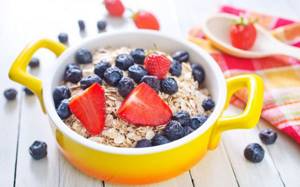
The positive effects of carbohydrates on the body before exercise
Even if you decide to completely cut out your carbs, you should consume them at least twice a day before and after your workout. The fact is that carbohydrates are a source of energy, so if they are lacking, you simply will not be able to complete the workout normally. Ask any bodybuilder who has had the good fortune to train in the morning on an empty stomach.
Why are carbohydrates beneficial after a workout?
Carbohydrates help your muscles recover after a workout, and they also increase insulin levels, which will fuel your muscles during recovery.
No carb and low carb diets
With such diets, you will not only reduce your fat percentage, but also lose muscle mass. Even look at bodybuilders, they reduce the amount of carbohydrates before competitions and shows, but this is to lose mass and achieve the desired weight, but closer to the show they begin to increase this percentage again in order to build muscle.
So, when you give up carbohydrates, you get rid of not only fat, but also muscle, while their correct proportions will help you gain muscle mass
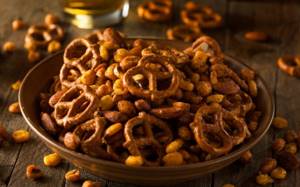
The essence of a low-carb diet for weight loss
The essence of a low-carb diet is to reduce carbohydrates in your daily diet. The main principle of such nutrition is increased consumption of protein and plant foods that are rich in fiber. The daily carbohydrate intake is 40 grams. This diet is popular among athletes because it allows the body to lose excess weight painlessly and noticeably “dry out.”
During intense training, such a nutritional system can help you get rid of excess food in a short period of time and achieve clearer muscle definition. With a low level of carbohydrates in the body, accumulated fat reserves begin to be used up, which leads to weight loss. But even without active sports, you can achieve remarkable results if you follow the necessary rules. A low-carb diet is effective not only for weight loss, but also for fighting diabetes. More about this below.
The low-carb diet menu is quite varied. Choose cottage cheese and sour cream with a low fat content, limit alcohol consumption, and lean on green and herbal teas without sugar. And remember: 2 liters of water a day!
Monday
Breakfast: oatmeal on water with an apple and 4 walnuts, green tea.
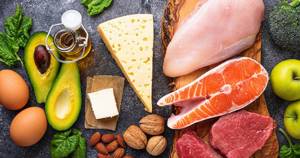
Snack: grapefruit, arugula salad, boiled egg, cucumber and olive oil.
Lunch: baked trout (200 grams), salad of tomatoes, cucumbers and fresh cabbage with olive oil, green tea.
Snack: 2 large green apples.
Dinner: low-fat cottage cheese (250 grams), boiled egg.
Tuesday
Breakfast: oatmeal on water with unroasted almonds (7-8 nuts), green tea.
Snack: grated carrots with lemon juice and olive oil.
Lunch: baked chicken breast (200 grams), salad of boiled beets (1 piece), arugula, olive oil and cucumber.
Snack: small peach or 2-3 apricots.
Dinner: stewed green beans without oil, salad of any green vegetables with 1 spoon of sour cream.
Breakfast: boiled buckwheat (200 grams), green tea.
Snack: grapefruit and a handful of unroasted almonds.
Lunch: boiled cod (250 grams), cabbage salad, carrots and 1 boiled egg with olive oil.
Dinner: stewed zucchini and salad of any green vegetables.
Thursday
Breakfast: low-fat cottage cheese (200 grams), 5-6 seasonal berries, green tea.
Snack: a handful of unroasted hazelnuts, cucumber and tomato salad.
Lunch: baked turkey (200 grams), avocado salad and any green vegetables.
Snack: 2 boiled eggs.
Dinner: stewed broccoli and a salad of boiled beans, herbs and tomatoes.
Friday
Snack: low-fat yogurt without additives.
Lunch: baked perch (200 grams), salad of tomatoes, cucumbers and fresh cabbage with olive oil.
Dinner: beef stew (250 grams), seasonal vegetable salad.
Saturday
Breakfast: low-fat yogurt, 1 large pear, 5-6 pieces of unroasted almonds, green tea.
Snack: stewed vegetables (200 grams).
Lunch: creamy pumpkin soup, boiled chicken and herbs salad.
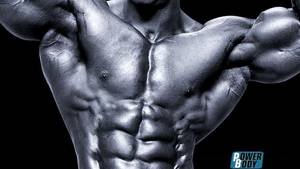
Snack: 1 boiled egg, a slice of low-fat cheese.
Dinner: baked eggplants, fresh cabbage, cucumber and radish salad.
Sunday
So, will carbohydrates help you lose weight and get ripped?
The answer is yes, but it's not that simple. After all, you need to take into account factors such as your body type and genetics; moreover, giving up carbohydrates on an ongoing basis will not lead to anything good.
In other words, carbohydrates are a necessary evil, because in addition to their disadvantages, they also have a huge number of advantages. Well, to be completely honest, they taste good too. And it will be difficult to completely abandon all this, because in the end it can lead to a breakdown, which is much worse than a correct and balanced approach.
Therefore, introduce carbohydrates into your diet and not only in cheat meals. After all, there are many foods in the world rich in complex carbohydrates that our body simply needs.
As discussed above, it is best to eat carbohydrates before and after training, but what if you train in the evening and the second carbohydrate intake occurs at night? It all depends on you, if you want to minimize the percentage of body fat, then it is better not to eat carbohydrates after training. If you just want to get in shape, then everything is in order, you can calmly eat at this time too.
| COMPLEX CARBOHYDRATES | SIMPLE CARBOHYDRATES |
| Oatmeal pancake | WHITE BREAD |
| WHOLE GRAIN CEREALS | WHITE RICE |
| SWEET POTATO | WHITE POTATOES |
| BROWN RICE | CUPCAKES, MUFFINS, DONUTS |
| QUINOA(QUINOA) | DRIED FRUITS |
| VEGETABLE STEW | INSTANT OATMEALRY |
| FRESH VEGETABLES | CHIPS |
| BEANS | CRENEEDLES |
To summarize, we can say that yes, you need to reduce carbohydrates a little, but do not try to give them up completely, and try to choose the right carbohydrates, or in other words, complex ones.
Eat eggs and other low-carb foods for breakfast
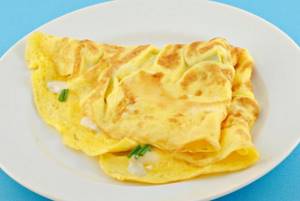
You can eat a small amount of food for breakfast, but it can be rich in various carbohydrates. For example, a half cup of granola contains about 35 grams of carbohydrates, and that's before adding milk.
The money tree pleases with lush flowering: my secret is in caring for the leaves
A Brazilian travels 36 km by bike every day to take his loved one home.
It’s good to wash often: myths about shampoo and hair care that only harm
Eggs are the perfect breakfast for people who want to lose extra pounds. The egg itself contains about one gram of carbohydrates. The product is also an ideal source of protein, which will help you feel full long after breakfast.
Eggs can be called a versatile product that can be prepared in a variety of ways.
Swap regular milk for coconut or almond milk
Milk is a nutritious product; it contains lactose, which is why it contains a sufficient amount of carbohydrates.
A small glass of full-fat or skim milk can contain 12-15 grams of carbohydrates. So you shouldn't add it to tea or coffee. In addition, it is also contained in a glass or latte, which makes the coffee more carbohydrate-rich.
Rare shot: Viktoria Isakova showed her grown-up daughter from Yuri Moroz (new photo)
Why French children behave well: eight ways to raise them
Lost weight: what Sofia Tarasova sacrificed for the sake of “VIA Gra” (new photos)
There are some milk substitutes available. The most popular are almond and coconut milk. However, there are other types that are made from different types of nuts. Various minerals and vitamins are often added to this milk to improve its nutritional composition.
Eat healthy, high protein foods
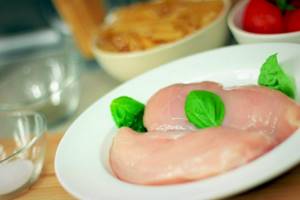
Eating plenty of protein at every meal will help you survive a no-carb diet. Protein is especially necessary for those people who are trying to lose weight.
"Dad is offended." Agata Muceniece about her relationship with Priluchny after the divorce
Women's jeans: before you buy them, you need to pay attention to one detail
A student at the Vietnam Police Academy shared how she takes care of her facial skin.
Protein releases hormones that reduce hunger and also protect muscle mass from cortisol. In addition, it has a high thermic value, which means your body spends much more energy digesting protein than digesting carbohydrates or fats.
Foods that are known around the world as good sources of protein include meat, fish, poultry, nuts, eggs, cottage cheese, cheeses, whey protein powder and Greek yogurt.

